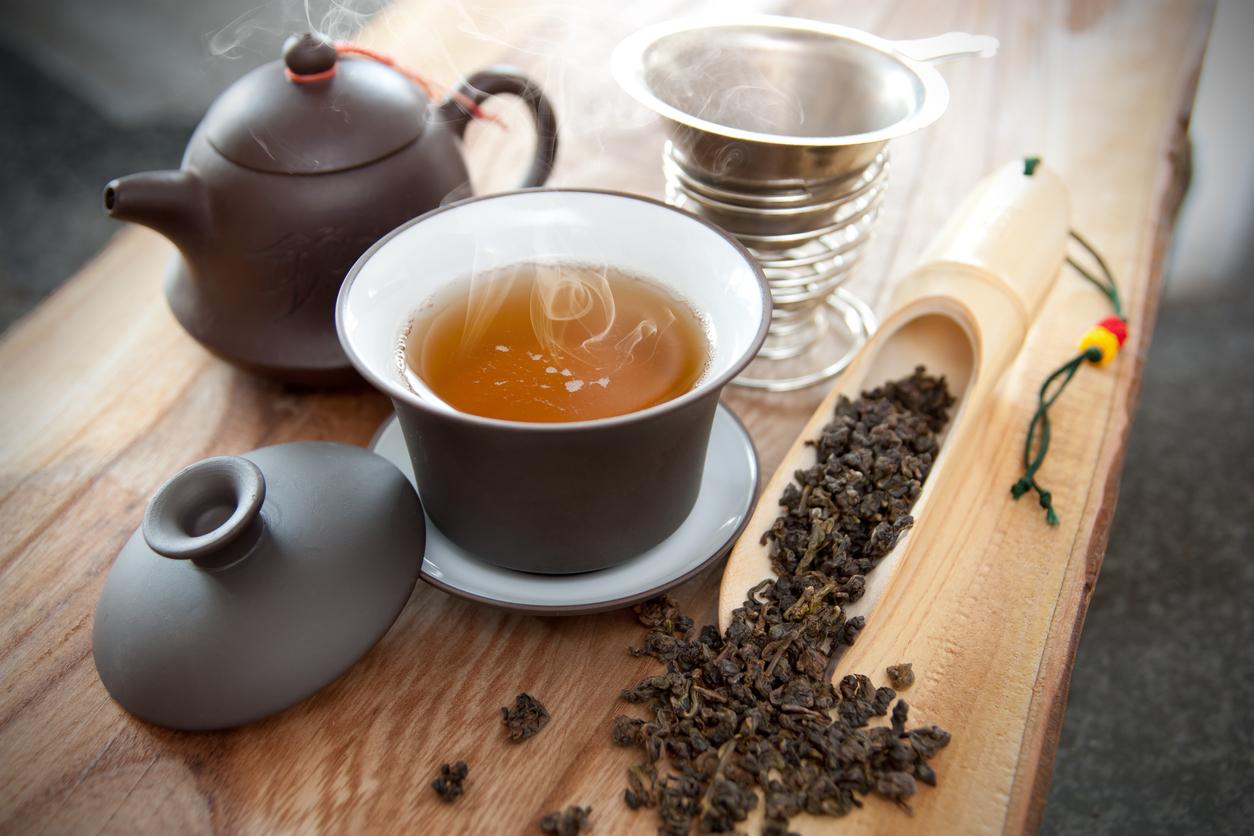Oolong tea can stimulate the breakdown of fats and continues to work even during sleep.

- The oxidation of oolong tea is incomplete. It is halfway between that of black tea and that of green tea.
- Drinking two cups of oolong tea a day could increase fat oxidation by about 20% without affecting 24-hour energy expenditure.
- This drink did not change sleep patterns or the time it took participants to fall asleep.
Antioxidant, relaxing, anti-inflammatory… Oolong tea, from China, is renowned for its many virtues. It comes from Camellia sinensis, the same shrub as green tea and black tea. However, oolong tea is only partially oxidized, giving it a unique flavor between green tea and black tea. Through this partial oxidation, oolong tea stimulates the production of catechins, natural compounds that are known to have beneficial health effects. Recently, researchers from the University of Tsukuba (Japan) revealed that this tea could be an ally for burning fat.
“Oolong tea contains caffeine”
“Like all teas, oolong tea contains caffeine, which influences energy metabolism by increasing heart rate. However, research suggests that drinking this tea may also increase fat breakdown, independent of the effects of caffeine, so we wanted to examine the effects of consuming oolong tea versus caffeine alone on energy and fat metabolism in a group of healthy volunteers.” said Professor Kumpei Tokuyama in a statement.
As part of their work, published in the journal Nutrients, the scientists recruited twelve men, who were divided into three groups. For 14 days, they drank either oolong tea (100 mg of caffeine, 21.4 mg of gallic acid, 97 mg of catechins and 125 mg of polymerized polyphenol), or coffee or a placebo, with breakfast and at lunch. “On the 14th day, a calorimetry (calculation and measurement of heat) over 24 hours and a polysomnographic recording of sleep were carried out”, the team said.
Drinking two cups of oolong tea would increase fat breakdown
The authors found that two cups of oolong tea and coffee increased fat breakdown by about 20% in participants compared to placebo. The oolong tea continued to work while the adults slept. According to the results, neither beverage caused an increase in energy expenditure, indicating that the volunteers developed a tolerance to the stimulatory effects of caffeine over the two weeks.
“The decrease in respiratory quotient caused by oolong tea was greater than that caused by caffeine during sleep,” specified the researchers. However, no notable differences in sleep patterns or the time it took participants to fall asleep were observed between the groups. This indicates that drinking oolong tea is unlikely to interfere with getting a good night’s rest.
“The stimulatory effects of oolong tea on the breakdown of fat during sleep could be of real clinical importance for weight control. However, we need to determine whether the effects observed in this study translate into an actual loss of body fat on a “In addition, we want to test a decaffeinated oolong tea to better distinguish the effects of caffeine from other tea components, which will help us understand exactly how oolong tea helps break down fat.” concluded Kumpei Tokuyama.

















